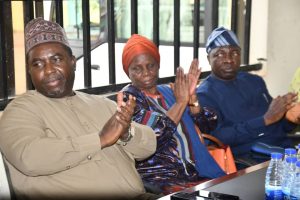Abuja, Nigeria – Nigeria’s Economic and Financial Crimes Commission (EFCC) has revealed a new tactic used by some politicians to legitimise stolen funds: declaring ownership of assets they do not yet possess.
Speaking in Abuja at the launch of a new virtual tool for public officers, EFCC Chairman Ola Olukoyede named the practice “anticipatory declaration of assets.” He said it allows corrupt officials to list properties they intend to buy with stolen money, thereby shielding themselves from future investigation.
The EFCC boss cited a recent case where a politician declared a mansion worth over N3bn (£2.5m) on their asset declaration form before it had even been built. He explained that investigators found the politician had only registered the land and completed building designs just before taking office.
Mr Olukoyede warned that this type of “premeditated corruption” could become more common and urged investigators to scrutinise asset declaration forms more closely.
New Digital Tool Launched to Combat Corruption
During the same event, Nigeria’s government launched a new digital platform designed to make the Code of Conduct for Public Officers more accessible. The Attorney General of the Federation, Lateef Fagbemi, described the virtual tool as a “historic milestone” in the government’s fight against corruption.
He noted that while the code has been the “backbone of good governance” for decades, its impact has been hindered by low awareness. The new online platform, he said, aims to bridge this gap and promote transparency and accountability in public service. The tool was developed by the Technical Unit on Governance and Anti-Corruption Reforms (TUGAR) in collaboration with the Code of Conduct Bureau.





Add Comment